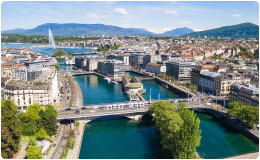TAX EFFICIENCY
Ontario offers competitive corporate tax rates, fostering business growth.

HIGH PRIVACY PROTECTION
Privacy laws ensure protection of sensitive corporate information.
SIMPLE SETUP PROCESS
Get your company up and running in just 10-15 business days.*
STRATEGIC LOCATION
Access to North American markets from a thriving economic region.

APPLICATION FORM
DOCUMENTS
INCORPORATED SUCCESSFULLY
VIA OUR CLIENT PORTAL
COMPANY FORMATION
-
More informationLearn more about our efficient business registration process in Ontario, which aligns with other Canadian provinces. The registration procedure depends on the chosen business structure, with four options available:
- Sole proprietorships
- Partnerships
- Corporation
- Co-operative
At SFM, our specialization lies in registering businesses as Corporations. Rest assured, all registered enterprises are automatically included in the "Registraire des Entreprises" registry, confirming their public presence.
As a fully licensed entity, we excel in facilitating business registration in Ontario. Our extensive range of ancillary services includes bank account opening, provision of professional directors, and more. Additionally, we offer comprehensive corporate services, ensuring compliance with state legislation and maintaining your company's legal standing. Our support extends to providing a registered address for official purposes, facilitating amendments to your company's name, and handling appointments or removals of company officers.
When you choose SFM, expect swift and confidential services that cater to your unique needs, such as transferring a business from another agency or acquiring essential company documents like the Certificate of Good Standing or Certificate of Incumbency. We are committed to your success and are here to assist every step of the way.
Start today and register your business in Ontario, Canada with SFM .
While the company may not be liable to pay taxes, please consult with a tax/legal advisor in your country of residence, to determine your own tax liability
 of your passport, a certified copy of proof of domicile dated less than three months, a curriculum vitae, as well as last 3 months' bank statement. All in original.**
of your passport, a certified copy of proof of domicile dated less than three months, a curriculum vitae, as well as last 3 months' bank statement. All in original.**
* Subject to the constraints of the due diligence procedure.
** Documents must be provided for every person related to the company.
Disclaimer: Nothing on this webpage shall be construed as a contractual commitment or as a warranty. Services conditions are governed by the applicable terms and conditions.
TESTIMONIALS
Jan 19, 2026
SFM keeps me informed of all legal requirements that I have to comply with and also all regulatory changes and deadlines.
Dec 23, 2025
Nov 19, 2025
Honest, structured, and realistic review from a real client
In 2025, I used SFM Corporate Services to set up a Delaware LLC. Before starting, I came across a lot of mixe...
Oct 21, 2025

Take the first step toward a successful business setup in Canada (Ontario) with trusted support every step of the way.
Start my company formation
ASKED QUESTIONS
-
Where in Canada do you setup companies?
We register companies in Quebec City which has an efficient and fast registry. -
Is a Canadian company tax liable?
Not if the company is considered non-resident. Each Canadian company must periodically declare whether it has been resident in Canada or not for the relevant period.
A Canada company is not to be regarded as resident solely by virtue of being registered in Canada – it must be effectively managed or controlled from the Canada or perform activities locally.
In the case any activity is performed in relation to Canada, it is recommended to assess the company’s situation with a Canadian Tax Accountant. -
Do I need to appoint an auditor on the company?
Not if the company doesn't reach a treshold of 50 million CAD turnover. -
Will my name be disclosed once I setup a company in Canada?
Yes, the officers of the company will appear in Quebec's registry of companies. -
Is it easy to open a bank account for a Canadian company?
Yes, it is easier than pure offshore companies, Canada being white listed by the OCDE. -
What are the rules for choosing a company name in Canada?
The rules for the granting of names under the Canada Business Corporations Act (CBCA) and the Canada Corporations Act (CCA) are almost the same.
Essentially, an applicant cannot have a name that
- lacks distinctiveness
- is likely to cause confusion with other businesses
- is likely to mislead the public
- is reserved for another business
- is obscene, or
- has an unacceptable French or English form
-
What is the paid up capital for a Canadian company?
It is 1 CAD. -
Do I need to travel to Canada at any stage to form a company there?
No, everything can be processed remotely. -
What are the types of business in Canada?
The primary forms of business in Canada are:- Sole proprietyships
- Partnerships
- Corporation
- Co-operative
What is the difference between incorporating federally and provincially?
You can do business in all provinces and territories if you form a federal corporation. If you incorporate provincially, you can only do business in that province.Can a Quebec corporation do business in Ontario?
Because of a specific arrangement between Quebec and Ontario, if you start a firm in Quebec, you won’t require an extra-provincial license to do business in Ontario, and vice versa.What is NEQ number?
The Quebec Enterprise Number (NEQ) is a ten-digit identification number given to companies upon registration. To comply with Quebec company registration regulations, corporations, partnerships, non-profit corporations, trusts, and other entities must get a NEQ.Still have questions?
TALK TO AN EXPERT

ARTICLE - FEB 12, 2026
2025’s AML Crackdown in the U.S.: What Financial Institutions Must Do Now
Read Article

ARTICLE - DEC 31, 2025
BVI Company Law Reform 2025: New Transparency and Filing Requirements Explained
Read Article

ARTICLE - DEC 23, 2025
Switzerland AML Reforms 2025: What Businesses and Advisors Must Know
Read Article


ARTICLE - NOV 04, 2025
Offshore Substance Requirements 2025: How Corporate Service Providers Must Adapt
Read Article


